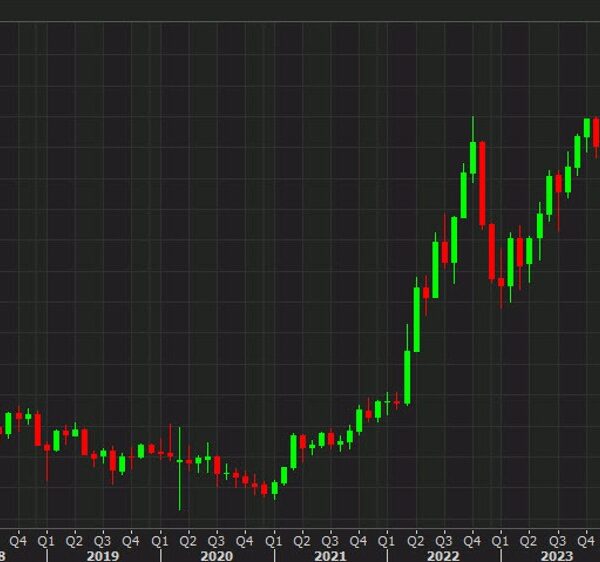

Novo Nordisk has become Europe’s most valuable company due to soaring demand for its weight loss-aiding drugs Wegovy, Semaglutide, and Ozempic. But, as the effective backbone of the Danish economy goes from strength to strength, it now faces the daunting task of making sure the country’s residents aren’t left behind.
Novo Nordisk has had a major factory in Kalundborg, about an hour outside the Danish capital of Copenhagen, for 55 years.
The company has pledged to invest 60 billion kroner ($6.7 billion) in upping its manufacturing capabilities and hiring 1,250 workers in the town.
However, so far, at least, that investment, equivalent to around $400,000 per Kalundborg resident, isn’t translating into much tangible progress for locals.
Locals complain about a “Novo queue” in the town as employees commute into Kalundborg from neighboring areas. The town is planning to overhaul its patchy road network in a bid to ease congestion.
A more tragic irony in the town is an obesity crisis among residents living in the shadow of the massive Wegovy-making plant. Kalundborg is in the top 5% of towns in Denmark for overweight children, the BBC reports, a major indicator of deprivation.
In addition, schools in the town are reported to be heavily underserviced and struggle to attract the best teachers.
“If you saw that, you will take one of the big cities around here and say, ‘Well, we will live there and then I can drive to Kalundborg to work,’” regional councilor Helle Laursen Petersen told the BBC.
Denmark’s ‘Nokia risk’
Novo Nordisk has become the golden child of the Danish economy since its weight loss-aiding drugs became popularized beyond diabetic patients.
Valued at around $500 billion, the group is now Europe’s biggest company by market capitalization. It was briefly larger than the entire Danish economy and was largely responsible for the country’s GDP expansion last year. The economy would have shrunk without Denmark’s booming pharmaceutical sector rather than expanding by 1.1% in the first nine months of 2023.
That has created fears of a “Nokia risk” over the potential for Denmark to become too reliant on the pharmaceutical sector, particularly Novo Nordisk. The risk refers to Finnish telecommunications giant Nokia’s collapse in the early 2000s, which dragged down the entire Finnish economy.
It is a risk that long-time locals of Kalundborg will be sensitive to. The town was a manufacturing hub in the 1960s for the hair roller maker Carmen Curlere before it was sold to U.S. firm Clairol, eventually leading to thousands of job losses and the plant’s closure in 1990.
Novo Nordisk has sought to amp up its supply capabilities amid soaring demand, particularly in the U.S. Its time as an economic juggernaut is still nascent, however, with Novo’s valuation increasing by more than 400% in the last six years.
There is some early evidence that Novo Nordisk’s investment is beginning to filter through to Kalundborg. Three universities, including University College Absalon, offer biotech courses on campuses, encouraging a raft of students to flock there and, potentially, for private investment to follow.
The Novo Nordisk Foundation, one of the world’s largest private philanthropic organizations, funds the research and education center, the Helix Lab, in Kalunborg.















